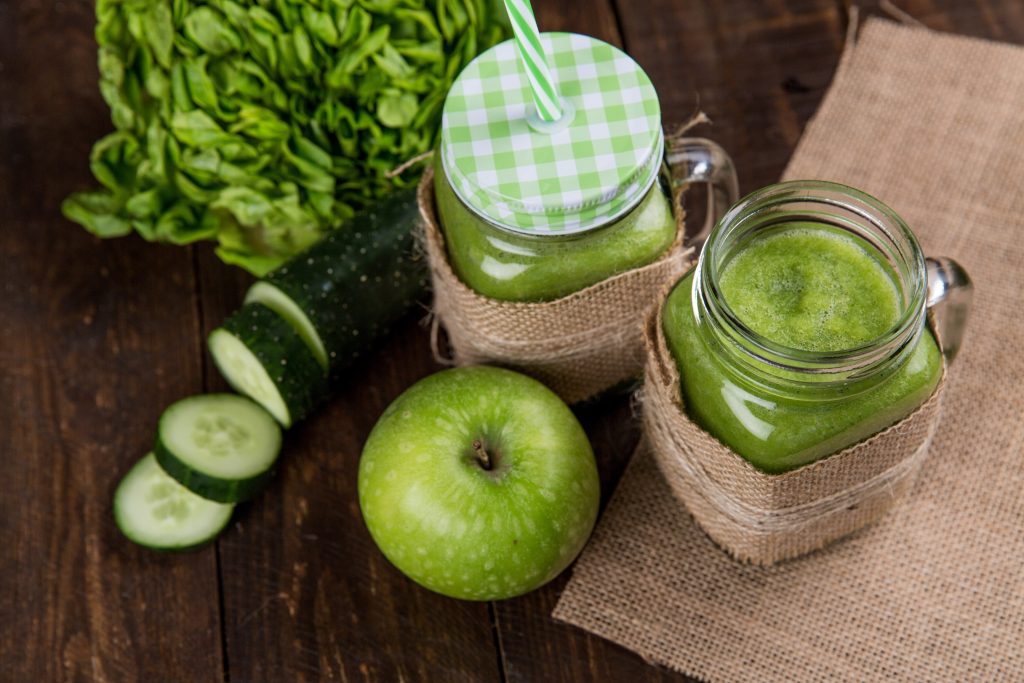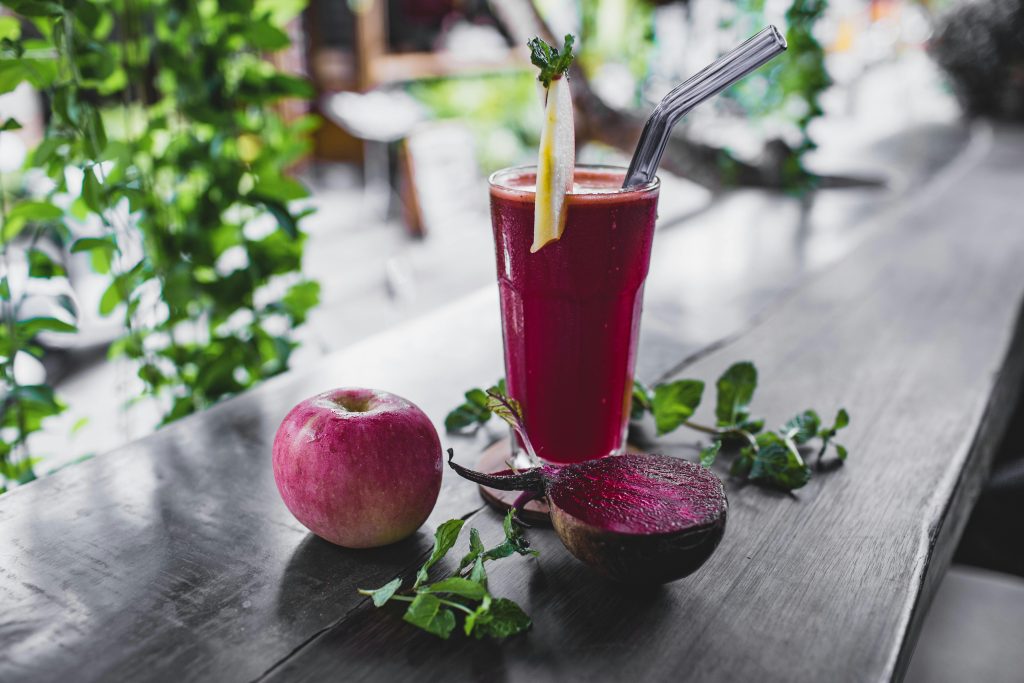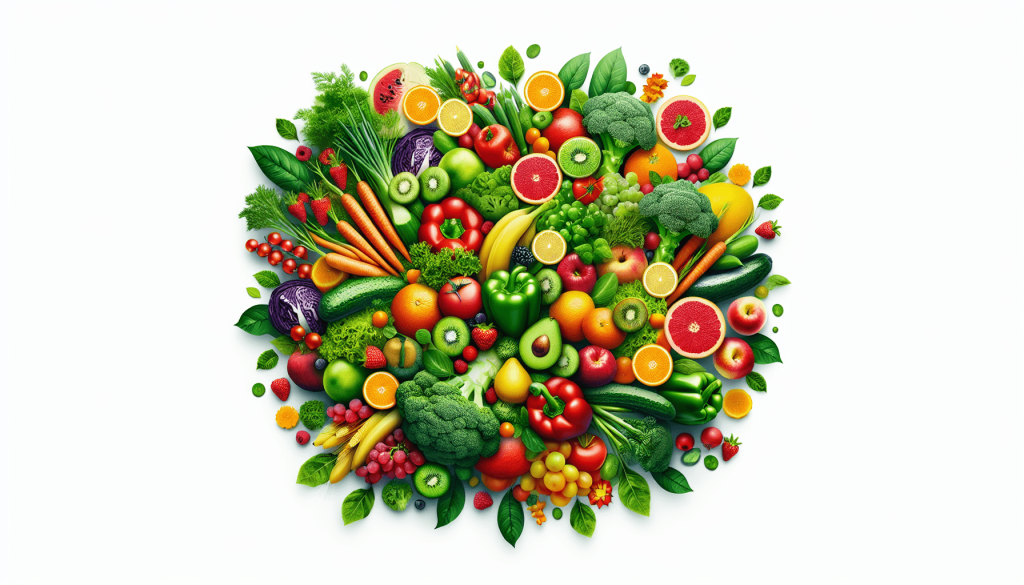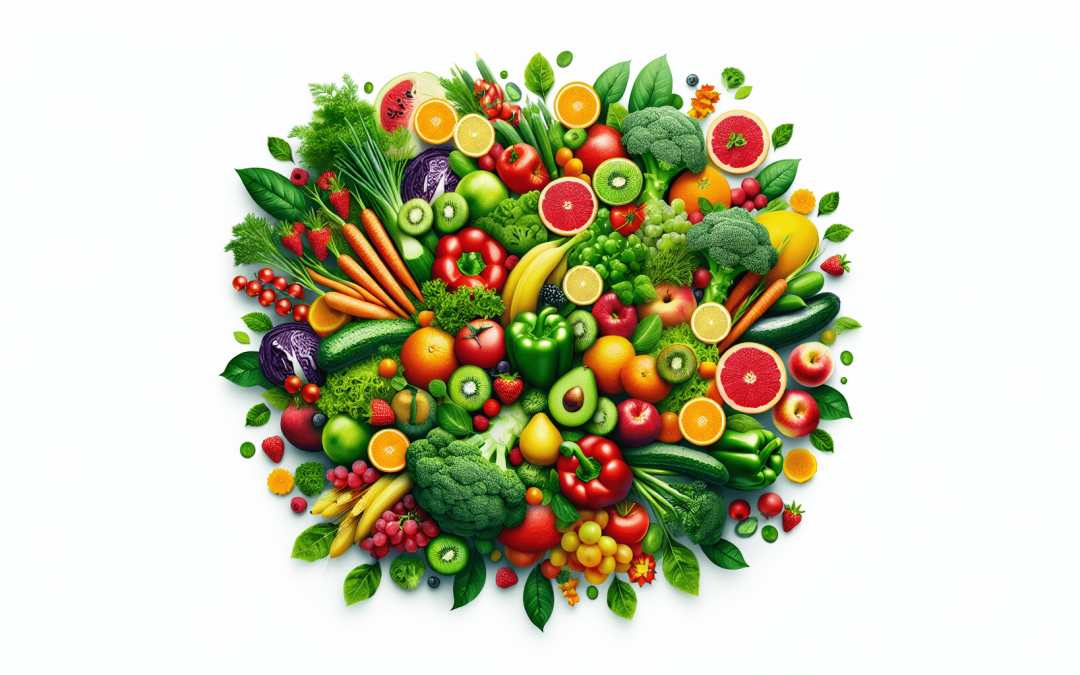Have you ever wondered what naturally cleans out your system? We often hear about detox diets and cleansing products, but what about the natural methods? In this article, we will explore the top natural ways to cleanse your body, from eating certain foods to adopting healthy lifestyle habits. Discover how these simple yet effective methods can help you feel refreshed and rejuvenated from the inside out. Say goodbye to toxins and hello to a healthier you!
Water
Water is an essential element for overall health and plays a crucial role in cleansing your system. It is vital for various bodily functions, including digestion, absorption, circulation, and excretion. Drinking an adequate amount of water helps flush out toxins and waste products from your body, keeping you hydrated and revitalized.
Importance of water for cleansing
Drinking water is the foundation of any detoxification process. Water helps to dilute and flush out harmful substances, such as metabolic waste, toxins, and free radicals, from your body. It aids in the elimination of waste products through urine and sweat, assisting your kidneys and liver in their detoxification processes.
Benefits of drinking water for detoxification
Apart from its cleansing properties, water offers numerous benefits for detoxification. It boosts metabolism, aiding in weight loss and the removal of stored toxins in fat tissues. Water also helps maintain proper bowel function, preventing constipation and supporting the elimination of waste through your digestive system.
Additionally, consuming an adequate amount of water improves your skin’s health by keeping it hydrated and promoting a youthful, radiant appearance. Water is also essential for maintaining optimal energy levels, mental clarity, and overall well-being.
Recommended daily water intake
The ideal daily water intake varies based on individual factors such as age, sex, activity level, and climate. As a general guideline, it is recommended to drink at least eight 8-ounce glasses of water per day, which equals about 2 liters or half a gallon. However, certain conditions, such as intense physical activity or hot weather, may require you to increase your water intake.
Remember to listen to your body’s signals and drink water when you’re thirsty. Additionally, you can include hydrating foods like watermelon, cucumbers, and soups in your diet to supplement your water intake.
Fruits and Vegetables
Including a variety of fruits and vegetables in your diet is another natural way to cleanse your system. These potent natural foods are rich in vitamins, minerals, antioxidants, and dietary fiber, all of which contribute to detoxification and overall well-being.
Natural detoxifiers in fruits and vegetables
Several fruits and vegetables possess natural detoxifying properties that help cleanse your body. Citrus fruits like lemons, oranges, and grapefruits are rich in vitamin C, which supports liver function and the production of detoxifying enzymes. Berries, such as blueberries and strawberries, are packed with antioxidants that neutralize harmful free radicals and protect the body against cellular damage.
Cruciferous vegetables like broccoli, cabbage, and kale contain compounds that promote detoxification by supporting liver health and helping to eliminate toxins. Additionally, garlic and onions possess sulfur-containing compounds that aid in the detoxification process.
High fiber content aids digestion
Fruits and vegetables are excellent sources of dietary fiber, which is crucial for proper digestion and elimination of waste. Fiber adds bulk to your stool, facilitating regular bowel movements and preventing constipation. This promotes the natural cleansing of your digestive system and reduces the build-up of toxins and waste products.
The fiber in fruits and vegetables also acts as a prebiotic, nourishing the beneficial bacteria in your gut. This helps maintain a healthy balance of gut flora, supporting overall digestive health and enhancing the detoxification process.
Fruits and vegetables to include in your diet
To optimize your body’s natural cleansing process, it is recommended to include a variety of fruits and vegetables in your daily diet. Some beneficial options include leafy greens like spinach and arugula, berries such as strawberries and raspberries, citrus fruits like oranges and grapefruits, cruciferous vegetables like broccoli and cauliflower, and garlic and onions.
Be creative and explore different recipes and combinations to make your fruit and vegetable intake enjoyable. Incorporate them into salads, smoothies, stir-fries, and other dishes to reap their detoxifying benefits while tantalizing your taste buds.

Herbal Teas
Herbal teas have been used for centuries to support detoxification and promote overall health. These natural infusions offer a gentle way to cleanse your system, providing various therapeutic benefits through their detoxifying properties.
Detoxifying properties of herbal teas
Herbal teas contain compounds that can aid in the detoxification process. Many herbs have diuretic properties, promoting urine production and helping to flush out toxins through your kidneys. Some herbs have mild laxative effects, supporting natural bowel movements and aiding in the elimination of waste products.
Additionally, certain herbs possess antioxidant properties that protect against cellular damage and reduce the impact of harmful toxins on your body. These properties help enhance the overall detoxification process, supporting liver function and reducing oxidative stress.
Common herbal teas for cleansing
There is a wide range of herbal teas available, each with its own unique cleansing properties. Some commonly used herbal teas for detoxification include:
- Dandelion tea: Dandelion roots and leaves have diuretic properties, aiding kidney function and promoting the elimination of toxins.
- Ginger tea: Ginger is known for its digestive benefits, helping to cleanse your digestive system and reduce inflammation in the gut.
- Peppermint tea: Peppermint is soothing and can relieve digestive discomfort, making it a great option for promoting healthy digestion and detoxification.
- Milk thistle tea: Milk thistle is renowned for its liver-protective properties. Drinking milk thistle tea can support liver function and enhance its detoxification abilities.
- Green tea: Green tea is rich in antioxidants and catechins that can aid in detoxification by reducing oxidative stress and supporting liver health.
How to prepare and consume herbal teas
To enjoy the detoxifying benefits of herbal teas, it’s important to prepare and consume them correctly. Start by selecting high-quality organic herbs or tea bags, ensuring you’re getting the most out of their beneficial properties.
To prepare herbal tea, simply steep the herbs or tea bags in hot water for the recommended amount of time, usually around 5-10 minutes. Strain the tea or remove the tea bags before consuming. You can sweeten your tea with a natural sweetener like honey or enjoy it as is.
For optimal detoxification benefits, it is recommended to consume herbal teas throughout the day. You can start your morning with a cup of dandelion tea and include ginger tea or green tea in the afternoon. Experiment with different herbal tea combinations and find what works best for you.
Whole Grains
Incorporating fiber-rich whole grains into your diet is an effective way to support detoxification and maintain overall health. Whole grains are unrefined and contain the entire grain, including the bran, germ, and endosperm. This makes them high in dietary fiber, essential nutrients, and antioxidants.
Fiber-rich whole grains for detoxification
The high fiber content of whole grains is beneficial for detoxification as it promotes regular bowel movements and helps eliminate waste from your digestive system. Fiber acts as a natural scrub brush, gently sweeping through your intestines and assisting in the removal of toxins and waste products.
The insoluble fiber found in whole grains adds bulk to your stool and speeds up its passage through the digestive tract. This helps prevent constipation, reduces the time harmful substances stay in contact with your intestinal walls, and supports the natural cleansing process.
Health benefits of consuming whole grains
Eating whole grains provides numerous health benefits beyond detoxification. Whole grains are rich in vitamins, minerals, and antioxidants, which play a crucial role in supporting overall well-being. They offer sustained energy, are beneficial for weight management, and can help reduce the risk of chronic diseases such as heart disease, type 2 diabetes, and certain types of cancer.
Whole grains also support gut health by acting as prebiotics, feeding the beneficial bacteria in your gut. This promotes a healthy balance of gut flora, enhancing digestion, nutrient absorption, and the elimination of toxins.
Popular whole grain options
There are several delicious and nutrient-packed whole grain options to include in your diet. Some popular choices include:
- Quinoa: Quinoa is a complete protein and is rich in fiber, vitamins, and minerals. It is a versatile grain that can be used in salads, bowls, and as a side dish.
- Brown rice: Brown rice is a great source of fiber, magnesium, and B vitamins. It can be used as a base for stir-fries, pilafs, or in sushi rolls.
- Oats: Oats are packed with soluble fiber, which helps promote healthy cholesterol levels and supports digestive health. Enjoy a warm bowl of oatmeal or try overnight oats for a convenient breakfast option.
- Whole wheat: Whole wheat products, such as bread, pasta, and wraps, are excellent sources of fiber and nutrients. Look for products labeled “100% whole wheat” to ensure you’re getting the full benefits of the grain.
Incorporate these whole grains into your meals and experiment with different recipes to boost your fiber intake and support your body’s natural detoxification processes.

Probiotics
Probiotics are beneficial bacteria that support a healthy gut microbiome, promoting digestion, immune function, and detoxification. Including probiotic-rich foods in your diet is an effective way to maintain a balanced gut flora and enhance your body’s natural cleansing abilities.
Role of probiotics in gut health
Probiotics play a crucial role in maintaining a healthy gut microbiome. They help populate your intestines with beneficial bacteria, which are essential for proper digestion, nutrient absorption, and immune function. A balanced gut flora is also important for effective detoxification, as it supports the breakdown and elimination of toxins.
By maintaining a diverse and healthy gut microbiome, probiotics help prevent the overgrowth of harmful bacteria and support overall gut health.
Probiotic-rich foods for cleansing
Including probiotic-rich foods in your diet can help promote detoxification and support gut health. Some excellent sources of probiotics include:
- Yogurt: Choose plain, unsweetened yogurt that contains live and active cultures. Yogurt provides a good balance of beneficial bacteria and can be enjoyed as a snack, added to smoothies, or used as a topping for various dishes.
- Kefir: Kefir is a fermented dairy product that contains a wide variety of beneficial bacteria and yeasts. It has a tart flavor and can be enjoyed on its own or added to smoothies and salad dressings.
- Sauerkraut: Sauerkraut is fermented cabbage that is rich in probiotics and low in calories. Enjoy it as a side dish or add it to sandwiches and wraps for a tangy flavor.
- Kimchi: Kimchi is a spicy fermented cabbage dish popular in Korean cuisine. It is a rich source of probiotics and can be enjoyed on its own or added to stir-fries, rice bowls, and soups.
- Miso: Miso is a traditional Japanese paste made from fermented soybeans. It is used to flavor soups, dressings, and marinades, providing not only probiotics but also a unique umami taste.
How to incorporate probiotics into your diet
To harness the benefits of probiotics, it is important to consume them consistently and in adequate amounts. Start by including probiotic-rich foods in your daily meals and snacks. Yogurt and kefir can be enjoyed on their own or added to smoothies and sauces. Sauerkraut, kimchi, and miso can be used as condiments or added to various dishes.
If you prefer a more convenient option, probiotic supplements are available. Consult with a healthcare professional to determine the right type and dosage of probiotics for your needs.
Maintaining a healthy gut flora is an ongoing process, so it is important to incorporate probiotic-rich foods or supplements into your regular diet for long-term benefits.
Leafy Greens
Leafy greens are nutritional powerhouses that offer a wide range of health benefits, including detoxification support. These vibrant vegetables are rich in vitamins, minerals, antioxidants, and chlorophyll, making them excellent additions to your cleansing routine.
Detoxifying properties of leafy greens
Leafy greens possess natural detoxifying properties that can help cleanse your system. Chlorophyll, the pigment responsible for their vibrant green color, is known for its ability to bind to and eliminate toxins, heavy metals, and carcinogens from your body.
Additionally, leafy greens are packed with antioxidants that protect against cellular damage and reduce inflammation, supporting overall detoxification and reducing the burden on your liver and other detoxifying organs.
Nutritional benefits of leafy greens
Including leafy greens in your diet provides a wide array of essential nutrients that contribute to your overall health and well-being. These vegetables are rich in vitamins A, C, and K, as well as minerals such as calcium, magnesium, and potassium.
Leafy greens are also an excellent source of dietary fiber, which aids in digestion, supports regular bowel movements, and maintains a healthy gut microbiome. The high water content of leafy greens promotes hydration, while their low calorie and fat content make them a great addition to a weight loss or maintenance plan.
Different types of leafy greens to consume
There is a myriad of leafy greens to choose from, each offering unique nutritional profiles and flavors. Some popular options to include in your diet for detoxification include:
- Spinach: Spinach is rich in iron, folate, and vitamins A and C. It can be enjoyed raw in salads or sautéed with garlic as a side dish.
- Kale: Kale is a nutritional powerhouse packed with vitamins K, A, and C, as well as minerals like calcium and magnesium. Enjoy it raw in salads, sautéed, or used in smoothies.
- Swiss chard: Swiss chard is an excellent source of magnesium, potassium, and vitamins K and C. It can be prepared similarly to spinach or used as a flavorful wrap substitute.
- Arugula: Arugula is high in phytochemicals and contains vitamins A and K. Add it to salads, sandwiches, or pizzas to enjoy its peppery flavor and detoxifying benefits.
- Collard greens: Collard greens are rich in vitamins K, A, and C, as well as calcium and fiber. They can be used as a substitute for tortillas or enjoyed steamed or sautéed.
Experiment with different recipes and combinations to incorporate a variety of leafy greens into your diet. Whether eaten raw, cooked, or blended into smoothies, leafy greens provide essential nutrients and support your body’s natural cleansing process.

Exercise
Regular exercise is an integral part of a comprehensive detoxification routine. Physical activity not only improves cardiovascular health and boosts mood but also plays a pivotal role in supporting your body’s natural detoxification processes.
Importance of exercise for detoxification
Exercise increases blood flow and oxygen delivery to your organs, including your liver and kidneys, which are vital for detoxification. This increased circulation helps transport toxins and waste products away from your cells and organs, promoting their elimination through sweat and urine.
Physical activity also stimulates the lymphatic system, which plays a crucial role in removing toxins and waste from your body. By promoting lymphatic drainage, exercise enhances the efficiency of your body’s natural detoxification processes.
Types of exercises that support cleansing
Various types of exercise can support your body’s detoxification processes. It is important to find activities that you enjoy and that suit your fitness level. Some exercises that are particularly beneficial for detoxification include:
- Cardiovascular exercises: Activities like brisk walking, jogging, cycling, or swimming increase your heart rate, improve blood circulation, and enhance oxygenation. This helps transport toxins and waste products out of your body more efficiently.
- Strength training: Building muscle mass through activities like weightlifting enhances your metabolism, which aids in the breakdown and elimination of toxins stored in fat tissues. Strength training also supports overall organ function and promotes detoxification.
- Yoga: Yoga combines movement, deep breathing, and relaxation, making it an excellent exercise for detoxification. Yoga poses and sequences promote lymphatic drainage, enhance digestion, and support organ function, all of which aid in the elimination of toxins.
- Pilates: Pilates focuses on core strength, flexibility, and body awareness, making it beneficial for detoxification. It promotes circulation, supports liver function, and improves posture, all of which contribute to the body’s natural cleansing processes.
Recommended duration and frequency
To reap the detoxification benefits of exercise, aim for at least 150 minutes of moderate-intensity aerobic exercise or 75 minutes of vigorous-intensity aerobic exercise per week. Alternatively, you can incorporate a combination of both into your routine.
It is also beneficial to include strength training exercises at least two days a week to build muscle and support your body’s metabolic and detoxification processes.
Remember to listen to your body and gradually increase the intensity and duration of your workouts. Stay hydrated during exercise, and always consult your healthcare professional before starting or changing your exercise routine.
Intermittent Fasting
Intermittent fasting is a dietary approach that involves cycling between periods of eating and fasting. This practice has gained popularity for its potential health benefits, including supporting detoxification and promoting overall well-being.
How intermittent fasting aids in detoxification
Intermittent fasting promotes detoxification by allowing your body to focus on repair and elimination processes during the fasting periods. During fasting, the body’s insulin levels decrease, and it starts using stored fat as energy. This process, known as autophagy, helps cleanse the body’s cells by breaking down damaged cells, proteins, and toxins.
Intermittent fasting also supports liver function, as it reduces the workload on the liver during the fasting periods. This allows the liver to efficiently metabolize and eliminate toxins, promoting overall detoxification.
Different intermittent fasting patterns to try
There are several intermittent fasting patterns you can try, depending on your lifestyle and preferences. Here are some popular options:
- 16/8 method: This method involves fasting for 16 hours daily and restricting your eating window to 8 hours. For example, you might fast from 8 p.m. to 12 p.m. the next day, then consume all your meals within the remaining 8-hour window.
- 5:2 method: With this method, you eat normally for five days of the week and restrict your calorie intake to around 500-600 calories on the remaining two non-consecutive days.
- Alternate-day fasting: As the name suggests, alternate-day fasting entails fasting every other day while eating normally on non-fasting days. On fasting days, you may consume around 500-600 calories or follow a complete fast.
- Time-restricted feeding: Similar to the 16/8 method, time-restricted feeding limits your eating window to a specific duration, typically between 8 to 10 hours. You can choose the most suitable time frame according to your schedule.
It is essential to listen to your body during intermittent fasting and adjust the fasting pattern or duration as needed. It’s also important to maintain a balanced diet and ensure you’re getting all the necessary nutrients during your eating periods. If you have any underlying health conditions or concerns, consult with a healthcare professional before starting intermittent fasting.
Precautions and considerations
Intermittent fasting may not be suitable for everyone, especially those with certain health conditions, pregnant or breastfeeding women, or individuals with a history of disordered eating. It is crucial to consider your individual needs and consult with a healthcare professional before embarking on an intermittent fasting regimen.
It is also important to prioritize nutrient-dense, whole foods during your eating periods to support your body’s detoxification processes. Avoid overeating or relying on processed foods and sugars during your eating windows, as this can hinder your progress and overall health.
Remember to listen to your body and adjust your fasting pattern or duration if you experience any adverse effects or discomfort. Intermittent fasting should be approached as a sustainable and flexible lifestyle choice, rather than a rigid diet.

Detoxifying Herbs and Spices
Herbs and spices have been used for centuries for their detoxifying properties and culinary benefits. Including specific herbs and spices in your diet can promote detoxification, enhance flavor, and add a vibrant touch to your meals.
Popular herbs and spices for cleansing
Various herbs and spices possess detoxifying properties that can support your body’s natural cleansing process. Some popular options include:
- Turmeric: Turmeric contains the compound curcumin, which has potent antioxidant and anti-inflammatory properties. It supports liver function and aids in the removal of toxins from the body.
- Cilantro: Cilantro helps remove heavy metals from the body, including mercury, lead, and aluminum. It can be enjoyed fresh in salads or used as a garnish in various dishes.
- Ginger: Ginger promotes healthy digestion, reduces inflammation, and supports liver function. It can be used fresh, dried, or in powdered form in both sweet and savory dishes.
- Cinnamon: Cinnamon is rich in antioxidants and has anti-inflammatory properties. It can help balance blood sugar levels and support liver health. Add it to your morning oatmeal or sprinkle it on baked goods for a flavorful detoxifying boost.
- Garlic: Garlic is known for its sulfur compounds that aid in the detoxification process. It supports liver function and promotes the removal of harmful substances from the body.
How to incorporate detoxifying herbs and spices into meals
Incorporating detoxifying herbs and spices into your meals is an easy and flavorful way to enhance their cleansing properties. Here are some ideas to get you started:
- Add turmeric to curries, soups, smoothies, or golden milk for its vibrant color and detoxifying benefits.
- Use cilantro as a garnish for salads, salsas, or guacamole to add freshness and promote heavy metal detoxification.
- Grate fresh ginger into stir-fries, smoothies, or teas for its zesty flavor and digestive support.
- Sprinkle cinnamon on oatmeal, yogurt, or roasted vegetables for added sweetness and its detoxifying effects.
- Incorporate garlic in marinades, sauces, or roasted vegetables to enhance flavor and support overall detoxification.
Experiment with different combinations and quantities to find your preferred taste. Incorporating these detoxifying herbs and spices into your meals will not only add depth and flavor but also support your body’s natural detoxification processes.
Deep Breathing
Deep breathing exercises are a simple yet powerful tool for cleansing your system. They help promote relaxation, reduce stress, and support your body’s natural detoxification processes.
Importance of deep breathing for cleansing
Deep breathing promotes the supply of oxygen to your cells and assists in removing toxins and waste products through your breath. By increasing your oxygen intake, deep breathing supports the functioning of your lungs, enhances blood oxygenation, and improves overall cellular metabolism.
Additionally, deep breathing stimulates the lymphatic system, which aids in the removal of toxins from your body. It also activates the parasympathetic nervous system, promoting relaxation and reducing stress, which is essential for the body’s optimal detoxification.
Techniques for deep breathing
There are various deep breathing techniques you can practice to cleanse your system and promote relaxation. Here are a few simple yet effective methods:
- Diaphragmatic breathing: Place one hand on your chest and the other on your abdomen. Inhale deeply through your nose, allowing your abdomen to rise as you fill your lungs with air. Exhale slowly through your mouth, letting your abdomen fall. Focus on the sensation of your breath and repeat for several minutes.
- Box breathing: Visualize a box with four equal sides. Inhale slowly through your nose for a count of four, hold your breath for a count of four, exhale through your mouth for a count of four, and hold your breath again for a count of four. Repeat this cycle for a few minutes, maintaining equal duration for each phase.
- Alternate nostril breathing: Sit comfortably and place your right thumb on your right nostril and your ring finger on your left nostril. Close your right nostril with your thumb and inhale deeply through your left nostril. Close your left nostril with your ring finger and exhale through your right nostril. Inhale through the right nostril, close it, and exhale through the left nostril. Repeat for a few minutes, alternating between nostrils.
These exercises can be practiced for a few minutes each day or whenever you feel the need to relax and cleanse your system. Find a quiet, comfortable space and allow yourself to fully focus on your breath and the sensations of deep breathing.
Benefits of deep breathing exercises
Deep breathing exercises offer numerous benefits for your physical and mental well-being. In addition to supporting detoxification, they help:
- Reduce stress and promote relaxation: Deep breathing activates the parasympathetic nervous system, which counteracts the body’s stress response. This induces a state of relaxation, reducing stress levels and promoting overall well-being.
- Improve lung function: Deep breathing exercises expand your lung capacity and enhance oxygenation, supporting lung health and improving overall respiratory function.
- Boost mental clarity and focus: Deep breathing increases oxygen flow to the brain, improving cognitive function, concentration, and mental clarity.
- Enhance sleep quality: Practicing deep breathing before bed can help calm the mind, relax the body, and promote better sleep quality.
Make deep breathing exercises a daily practice to reap their full benefits. Consistency is key, so try to incorporate them into your routine, whether it’s in the morning, during breaks, or before bedtime.
By incorporating these natural cleansing practices into your lifestyle, you can support your body’s detoxification processes, boost your overall health, and achieve a refreshed and revitalized feeling. Remember to listen to your body, make gradual changes, and enjoy the journey towards a healthier you. Cheers to a cleaner and more vibrant system!









